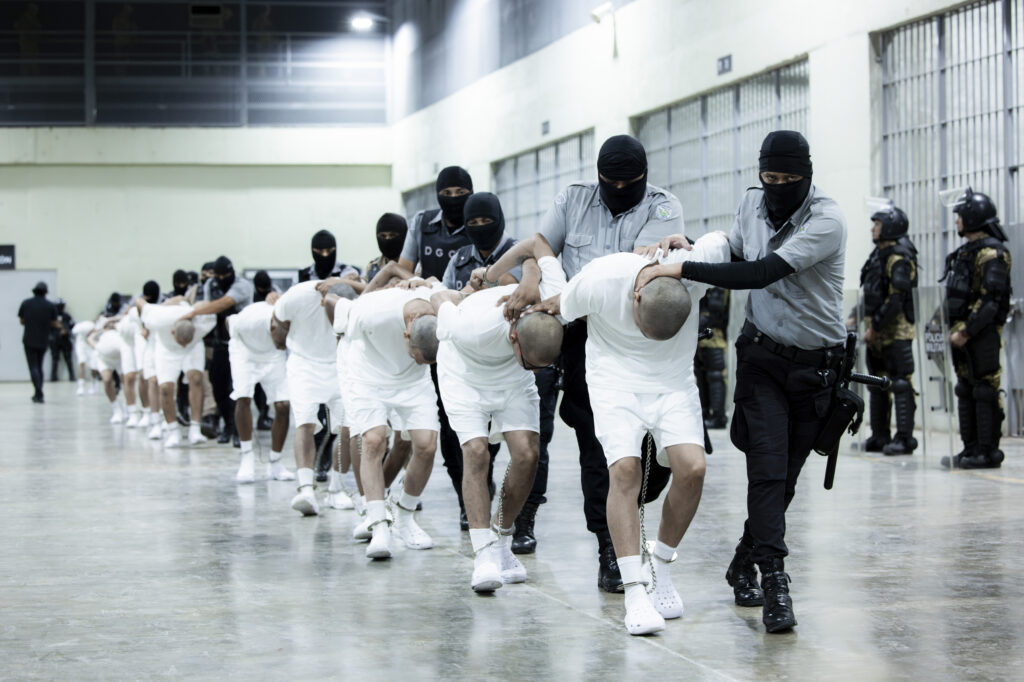Could Trump Suspend the Great Writ of Habeas Corpus as Part of His Crackdown on Illegal Immigration?
A scholar tells the Sun that the ancient privilege will be ‘front and center’ in the 47th president’s clash with the courts.

The conflict between President Trump’s wide-ranging crackdown on illegal immigration and the courts is escalating to where the future of the writ of habeas corpus could tip into doubt. It is one of the most sacrosanct privileges in Anglo-Saxon law, but is fast emerging as a stumbling block to the 47th president’s agenda.
Habeas corpus — in Latin, “you shall have the body” — is a tool to challenge unlawful imprisonment. The 18th century scholar William Blackstone called it a “great and efficacious writ in all manner of illegal confinement.” Habeas predates Magna Carta, with it first taking form at the Assize of Clarendon under Henry II in 1166. In the Magna Carta it is the command that “No man shall be arrested or imprisoned…except by the lawful judgment of his peers and by the law of the land.”
Article I Section 9 of the Constitution, sometimes called the Suspension Clause, ordains that “The Privilege of the Writ of Habeas Corpus shall not be suspended, unless when in Cases of Rebellion or Invasion the public Safety may require it.” That suspension is included among the powers of the legislature, not of the executive branch.

The Supreme Court on Tuesday ruled that the case of Venezuelan migrants — the government alleges that they are members of the Tren de Aragua gang — facing deportation under the Alien Enemies Act must be heard not at Washington D.C. but in Texas. The court’s majority determined that the case was governed by habeas, and those petitions are required to be filed in the place of detention — in this case, the Lone Star State.
In a per curiam decision the Nine determined that the petitions of the alleged gang members “fall within the ‘core’ of the writ of habeas corpus and thus must be brought in habeas.” In Rumsfeld v. Padilla, from 2004, the Supreme Court had held with respect to habeas cases that “jurisdiction lies in only one district: the district of confinement” — meaning Texas.
The high court’s understanding of this case as turning on habeas and therefore belonging in Texas rather than D.C. aligned with the wishes of the Trump administration to transfer jurisdiction away from Judge James Boasberg, whom Mr. Trump has called a “radical left lunatic of a judge, a troublemaker and agitator” who ought to be impeached. That prompted a rebuke from Chief Justice Roberts. The Supreme Court, though, reversed Judge Boasberg’s order enjoining the flights.
The Supreme Court also held — unanimously on this head — that though the Trump administration could continue deportations under the Alien Enemies Act, it was required to grant due process procedures to those it wanted to deport. On Wednesday, the federal court in Texas to which the Nine assigned the case issued an injunction freezing deportations under the Alien Enemies Act pending further proceedings.

Mr. Trump has already proclaimed a public “invasion” as prelude to his invocation of the Alien Enemies Act, which requires America to either be at war or be suffering from an “invasion” or “predatory incursion.” The 47th president asserts that this bar is met by Tren de Aragua, a “hybrid criminal state” that is bent on perpetrating “irregular warfare within the country.”
The Sun spoke to a scholar of habeas, Professor David Freedman. He predicts that the writ will be “front and center” in Mr. Trump’s deportation efforts as a “prime legal tool.” Mr. Freedman reckons that the criteria for declaring an “invasion” under the Alien Enemies Act are likely the same as for asserting one under the Suspension Clause. The writ was most famously suspended in America in 1863 by President Lincoln during the Civil War.
As Mr. Freedman points out, though, that suspension under the Great Emancipator was authorized by Congress. The bill was originally introduced by Congressman Thaddeus Stevens, and it allowed for the suspension of habeas for as long as the Civil War raged. An earlier effort by Lincoln to suspend habeas without the imprimatur of Congress was turned away by Chief Justice Taney.
Taney, who wrote the majority opinion in Dred Scott v. Sandford, held after Lincoln’s first failed attempt to suspend the writ that “if the authority which the Constitution has confided to the judiciary department and judicial officers, may … be usurped by the military power, at its discretion, the people of the United States are no longer living under a government of law.”
Bloomberg Law reports that “immigration lawyers are also bracing for how judges manage a high volume of habeas petitions, which are likely to increase both because of the Supreme Court’s order and because of an increase in immigrant detention generally under Trump.” That could set the stage for Mr. Trump to push, as Lincoln did before him, for Congress’s blessing to suspend habeas.

